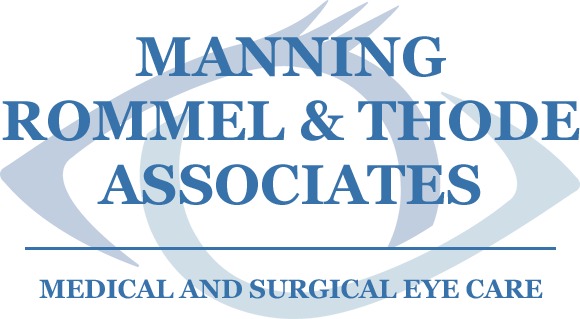As the warm sun beams down on us, it’s easy to forget about protecting our eyes from its harmful rays. But did you know that prolonged exposure to the sun can lead to serious eye conditions, such as cataracts, macular degeneration, and even cancer? Because of this, it’s crucial to shield your vision and prioritize sun protection for your eyes. In this age of digital screens and constant exposure to artificial light, our eyes need all the help they can get to stay healthy and maintain optimal vision.

Whether you’re heading out for a beach vacation or going for a stroll in the park, wearing sunglasses with UV protection is essential. But it doesn’t stop there – there are other measures you can take to safeguard your eyes from the harmful effects of the sun. In this article, we’ll explore the importance of sun protection for your eyes and provide you with essential tips and tricks to keep your vision crystal clear. So, grab your shades and let’s dive in!
The Importance of Protecting Your Eyes from the Sun
Our eyes are incredibly delicate organs, and the sun’s ultraviolet (UV) rays can cause significant damage if we don’t take the necessary precautions. Many of us are aware of the importance of protecting our skin from the sun, but we often overlook the need to shield our eyes as well. UV rays can penetrate the delicate tissues of the eyes, leading to a range of eye conditions and vision problems. By prioritizing sun protection for your eyes, you can significantly reduce the risk of developing these issues and maintain optimal eye health.
The Dangers of UV Rays on Your Eyes
UV rays are divided into three categories: UVA, UVB, and UVC. UVC rays are mostly absorbed by the Earth’s ozone layer and don’t pose a significant threat. However, UVA and UVB rays can cause serious damage to our eyes. UVA rays can penetrate deep into the eye, affecting the lens and retina, while UVB rays are absorbed by the cornea and lens.
Prolonged exposure to these rays can lead to various eye conditions, including:
- Cataracts: UV rays can accelerate the formation of cataracts, a condition in which the lens of the eye becomes cloudy, leading to blurred vision and difficulty seeing clearly.
- Macular Degeneration: UV rays can contribute to the development of age-related macular degeneration (AMD), a leading cause of vision loss in older adults. AMD affects the macula, the part of the eye responsible for central vision and can result in blurred or distorted vision.
- Photokeratitis: Also known as “sunburn of the eye,” photokeratitis is a painful condition that occurs when the cornea is exposed to excessive UV radiation. Symptoms include redness, tearing, and a gritty sensation in the eyes, similar to that aftermath you experience from having sand in your eyes.
Tips for Choosing the Right Sunglasses for Sun Protection
It’s important to note that when it comes to protecting your eyes from the sun, not all sunglasses are created equal. To ensure maximum protection, it’s essential to choose sunglasses that block 100% of both UVA and UVB rays. Look for sunglasses labeled as “UV400” or “100% UV protection” to ensure they meet the necessary standards.
Additionally, consider the following tips when selecting sunglasses:
- Opt for wrap-around styles or oversized frames that provide ample coverage and minimize the amount of UV rays entering from the sides.
- Choose sunglasses with polarized lenses to reduce glare and enhance visual clarity, especially when engaging in outdoor activities near water or snow as UV rays can reflect off of them.
- Select lenses that are made from impact-resistant materials to protect your eyes from potential hazards such as flying debris or sports-related injuries.
Remember, sunglasses are not just a fashion accessory! They are an essential tool for protecting your eyes from the sun’s harmful rays.
Other Ways to Protect Your Eyes from the Sun
While sunglasses are a crucial part of sun protection for your eyes, there are other measures you can take to further safeguard your vision.
Consider the following tips:
- Wearing a wide-brimmed hat or cap to provide additional shade and block out direct sunlight from reaching your eyes.
- Limiting your time in direct sunlight, especially during peak hours when the sun’s rays are the strongest, which is typically between 10 a.m. and 4 p.m.
- Using sunscreen specifically designed for the delicate skin around the eyes, as this area is particularly susceptible to sun damage.
- Installing window film or use window coverings that block out UV rays to protect your eyes when indoors or driving.
By incorporating these additional measures into your sun protection routine, you can further reduce your risk of developing eye conditions caused by sun exposure.
The Role of Nutrition in Maintaining Healthy Eyes
In addition to external sun protection measures, maintaining a healthy diet can also contribute to optimal eye health. Nutrients such as vitamin C, vitamin E, zinc, and omega-3 fatty acids have been linked to a reduced risk of certain eye conditions. That being said, they can also help protect against the damaging effects of UV rays. Incorporating foods rich in these nutrients into your diet, such as leafy greens, citrus fruits, nuts, and fatty fish can provide your eyes with the necessary nutrients to stay healthy and ward off potential damage.
How to Encourage Sun Protection for Children’s Eyes

Children’s eyes are even more vulnerable to the harmful effects of the sun’s rays, as their lenses are less capable of filtering out UV radiation compared to adults. Therefore, it’s crucial to express the importance of sun protection habits from an early age.
Here are some tips to encourage sun protection for children’s eyes:
- Lead by example: Wear sunglasses and a hat when spending time outdoors with your children.
- Invest in sunglasses specifically designed for children: Make sure that they provide 100% UV protection.
- Teach children about the importance of sun protection: explain the potential consequences of not protecting their eyes from the sun.
- Make sun protection fun! Allow your children to choose their own sunglasses in their favorite colors or designs.
By teaching children about sun protection and providing them with the necessary tools, you can help safeguard their eyes and set them up for a lifetime of healthy vision.
Sun Protection for Your Eyes During Outdoor Activities
Engaging in outdoor activities such as hiking, swimming, or playing sports exposes your eyes to increased levels of UV radiation.
It’s essential to take extra precautions during these times to protect your eyes, and you can do so by following these tips:
- Wear sports-specific sunglasses with shatterproof lenses and a snug fit to prevent them from falling off during physical activities.
- Use protective eyewear, such as goggles, when swimming to shield your eyes from chlorine and reduce the risk of UV damage.
- Apply a water-resistant sunscreen around your eyes, especially if you’ll be sweating or spending time in the water.
By following these guidelines, you can enjoy your favorite outdoor activities while keeping your eyes safe from the sun’s harmful rays.
Eye Care and Sun Protection for Individuals with Specific Health Conditions
Certain health conditions can make individuals more susceptible to the damaging effects of UV rays on their eyes.
If you have any of the following conditions, it’s important to take extra precautions:
- Diabetes: Individuals with diabetes are at an increased risk of developing diabetic retinopathy, a condition that can lead to vision loss. Protecting your eyes from UV rays can help reduce the risk of exacerbating this condition.
- Cataracts: If you’ve had cataract surgery, it’s crucial to protect your eyes from UV rays as they can cause damage to the artificial lens.
- Medications: Some medications, such as certain antibiotics and diuretics, can increase your sensitivity to sunlight. Taking extra care to protect your eyes is essential if you’re taking these medications.
If you have any specific health conditions or are taking medication, consult with your healthcare provider to determine the best course of action for protecting your eyes from the sun.
Prioritizing Sun Protection for Your Eyes
In conclusion, protecting your eyes from the sun is not just a matter of comfort – it is crucial for maintaining optimal eye health. The dangers of UV rays on our eyes are very real, and prolonged exposure can lead to various eye conditions and vision problems. By wearing sunglasses with UV protection, using additional sun protection measures, incorporating a healthy diet, and encouraging sun protection habits in children, you can shield your vision from the harmful effects of the sun’s rays. Whether you’re enjoying a day at the beach or going about your daily activities, make sun protection for your eyes a top priority. Your eyes will thank you for it! If you’re interested in learning more about the best way to protect your eyes, consider consulting with an eye doctor. However, there’s no need to search “eye doctor near me.” Contact the team at MRT Eyes to get started! Located in Lancaster, PA, we have been committed to the highest standards of care for over 20 years. Contact us today to see what we can do for your eyecare needs.
